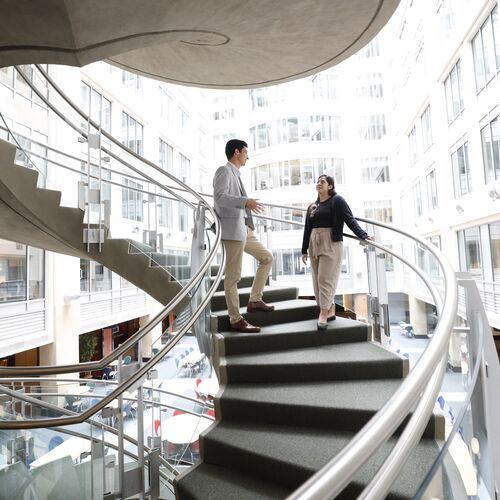Response and Resilient Recovery Strategic Science Initiative: A Rapid, Multidisciplinary Scientific Capability for Scenario Analysis
The NASEM Response and Resilient Recovery Strategic Science Initiative (R3SSI) will inform decision-making critical to planning for crisis response and recovery across U.S. society. This novel approach convened an Executive Council of leaders from government, business, academia, and other communities who identified major categories of concerns and opportunities for improvement related to the COVID-19 pandemic and its collateral effects and how to prioritize among them.
Strategy Groups:
Completed
Description
The National Academies of Sciences, Engineering, and Medicine (NASEM) will establish an activity to inform decision making critical to planning for crisis response and recovery across U.S. society. In this novel approach called the Response and Resilient Recovery Strategic Science Initiative (R3SSI), NASEM will convene an Executive Council of leaders from government, business, academia, and other communities who will identify major categories of concerns and opportunities for improvement related to the COVID-19 pandemic and its collateral effects and will prioritize among them. The concerns and opportunities may relate to issues such as the vulnerability in the food production sector due to illness among workers, financial viability of hospitals and the healthcare system, differential efficacy of vaccines when they become available, or childcare and K-12 education, just to name a few examples.
NASEM will establish Response and Resilient Recovery Strategy Groups (the Strategy Groups) that will consider the prioritized opportunities from the Executive Council and conduct rapid, scenario-based analyses of both possible and probable outcomes, including the impacts of natural and human-initiated stressors and possible interventions. The goal of the scenarios will be to identify resilient strategies that can provide roadmaps for recognizing vulnerabilities with approximate levels of scientific uncertainty, and identifying potential interventions.
The Strategy Groups will include sector-based leaders and experts to better define the challenges, scenarios, data available, key actors, and required resources. The Strategy Groups will develop a conceptual framework for addressing the question or scenario, including a set of initial conditions, input variables, and process assumptions to be explored in the scenarios, as well as indicators for estimating potential outcomes. They will consider the variables that could impact the scenarios including various scientific, commercial, educational, environmental, transportation, health, and other entities in the future. They will also include societal responses such as following social distancing guidelines or accepting a new vaccine. The Strategy Groups will determine potential chains of consequences based on potential pandemic scenarios of various probability (e.g., timeline of vaccine availability, mutation of the virus to be more or less virulent or transmissible), which can be revised as new information is obtained.
Each Strategy Group will also be able to enlist subject-matter experts on a flexible basis to support the specific needs of the question or scenarios under examination. The first Strategy Group to be appointed will begin with a pilot question or topic, during which some of the more granular aspects of the approach are worked out and insight is gained into the overall initiative structure and implementation. The Executive Council will revise and refine the process and approach based on the experience of this pilot scenario.
The analyses will be made available in timely manner. These analyses will be directly disseminated through national associations and other organizations directly relevant to the scenarios and to the communities they affect in order to inform future preparation, response, and recovery decisions.

Contributors
Sponsors
Internal Funding
Staff
Audrey Thevenon
Lead
Fran Sharples
Sabina Vadnais
Dasia McKoy
Lida Beninson
Major units and sub-units
Center for Health, People, and Places
Lead
Gulf Research Program
Collaborator
National Academy of Sciences
Collaborator
National Academy of Medicine
Collaborator
Policy and Global Affairs
Collaborator
Transportation Research Board
Collaborator
Center for Advancing Science and Technology
Collaborator
Life Sciences and Biotechnology Program Area
Lead
Discover
Events
Right Now & Next Up
Stay in the loop with can’t-miss sessions, live events, and activities happening over the next two days.
NAS Building Guided Tours Available!
Participate in a one-hour guided tour of the historic National Academy of Sciences building, highlighting its distinctive architecture, renowned artwork, and the intersection of art, science, and culture.